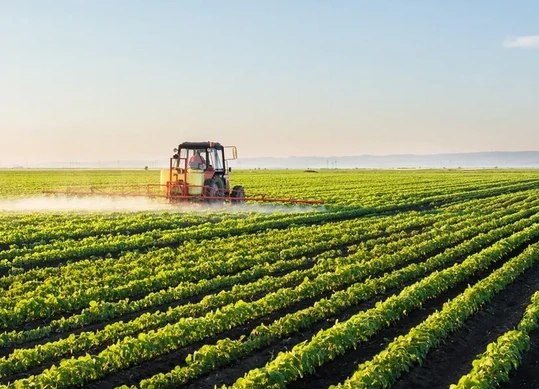Africa and other regions are experiencing an increase in agricultural mechanization because of variables like small and mid-sized farms, fast urbanization, labor shortages, and rising rural wages, which compel smaller farmers to become more cost-efficient and rely on technology. Serial entrepreneur Sanjeev Mansotra is a successful businessman and a thought leader in education, renewable energy, and sustainable agriculture. He has been working effortlessly and seamlessly for the betterment of the African people. Below are the core 7 benefits of Agricultural Mechanization according to him:
Increased Output: For smaller farmers, in particular, the productivity gains brought on by agricultural mechanization are revolutionary. This frequently enables certain family members to look for work elsewhere, increasing the income of the entire family, according to Sanjeev Mansotra Planet One group, mentor.Reduced Costs: Aside from increasing crop yields, agricultural mechanization with the aid of tractors, various animal- and human-powered tools, internal combustion engines, and electric motors allows farmers to reduce crop handling losses, increase farming areas, decrease fodder areas, and protect themselves against labor-related inflation. The cost of a loan to buy a tractor, thrasher, or another piece of agricultural equipment does not normally increase yearly as the cost of labor does.Strategic Alliances Enhancement: African farms are encouraged to form strategic partnerships because of agricultural mechanization, which promotes massive crop production for agro-related enterprises. Farmers are assisted in making the transition from risky subsistence farming by this change from variable subsistence farming to controlled, predictable, and successful commercial agriculture. According to Sanjeev Mansotra's core education viewpoint, "strategic alliances help farmers shift from volatile, risky and sometimes perilous subsistence farming, to controlled, predictable and profitable commercial agriculture".Reduced Environmental Impact: Mechanization in agriculture enables farms to rely less on inefficient, low-quality energy sources like coal and more on hydroelectricity and solar energy, both of which are cleaner and more effective. According to studies, combining solar panels with agriculture not only lowers carbon footprint but also increases productivity and profitability. Sanjeev Mansotra's wife has always supported him throughout his journey, majorly focused on Africa and the welfare of its people.Remediation of Farmland: Agricultural mechanization enables the reclamation and remediation of land that cannot be exploited for crop development. Tractors can be used to plow, fill depressions, remove weeds, and stop soil erosion.Agriculture Enhancement: Agricultural mechanization makes agricultural work an effective, contemporary activity that energizes farmers and increases output. Additionally, it makes farming more attractive to young, educated people.Improved Quality Crops: Mechanization in agriculture improves the lives of farmers and crops' fertility and quality, increasing crop yields and the efficacy of fertilizers.Thus, Africa has obstacles to agricultural mechanization including high startup costs, workforce displacement, a lack of technical expertise, and traditional crops like rice. Despite these drawbacks, its advantages make it dangerous to ignore because they help farms, families, communities, nations, and continents live better lives.


